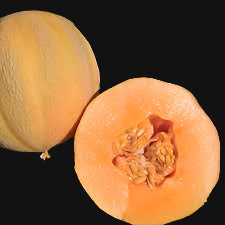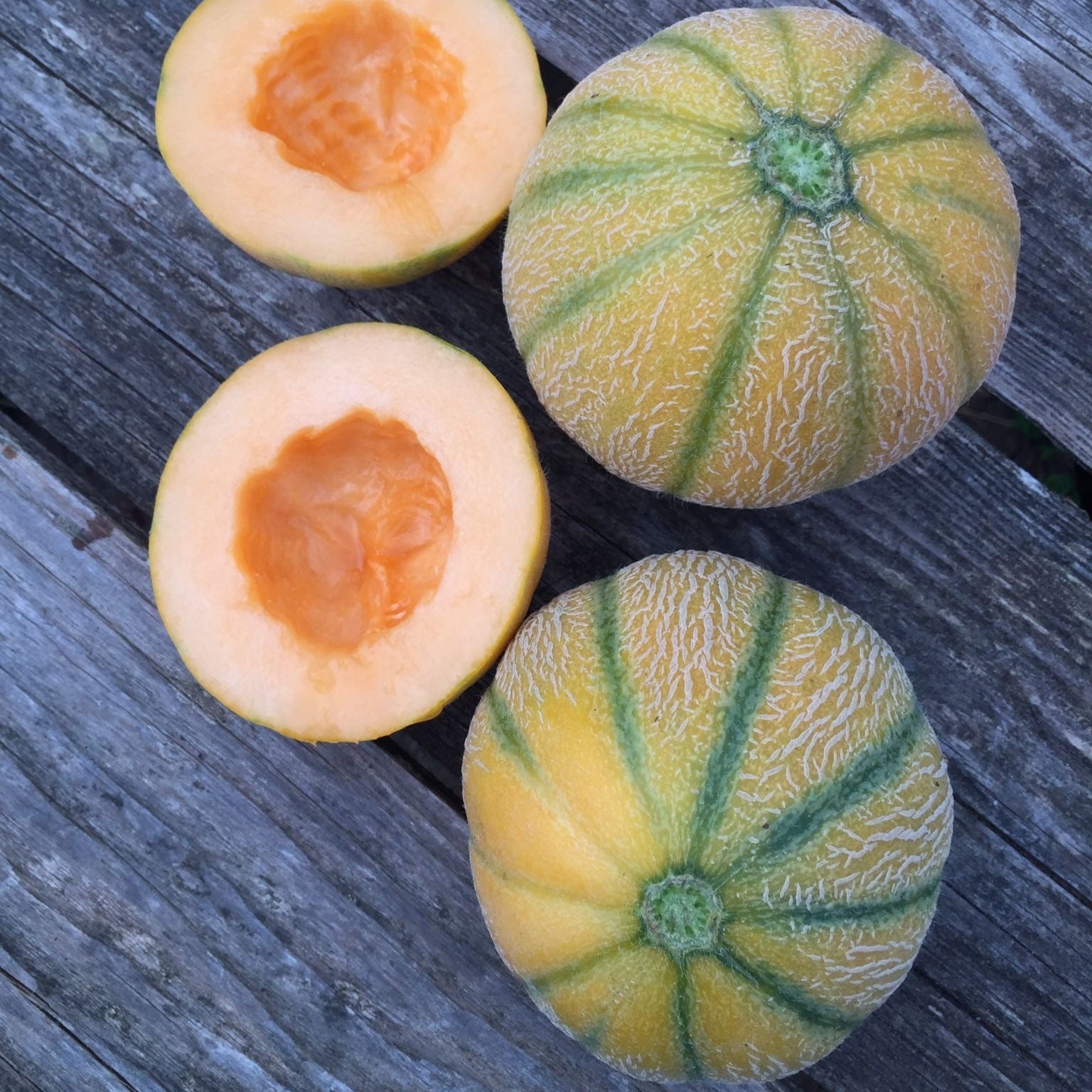
Minnesota Midget Melon
Minnesota Midget is a delightful compact muskmelon variety bred specifically for short growing seasons and cooler climates. The vines stay manageable in size, making them a great option for container gardens or smaller plots. Each plant yields 6–8 small round melons with sweet, juicy, deep orange flesh and a delicious old-fashioned melon flavour. The slightly rough, netted skin and segmented ribs give the fruit a traditional muskmelon appearance. Fruits ripen well off the vine when harvested with stems attached, making it a great choice for extended use.
Where Can You Grow Minnesota Midget Melon?
Well-suited for Zones 4–9, this variety prefers full sun, heat, and fertile, well-drained soil. Excellent in raised beds, greenhouses, and sunny garden plots.
History and Historical Uses
Developed in the mid-20th century by the University of Minnesota, this variety was bred for northern gardeners seeking a sweet, fast-maturing muskmelon that could thrive in shorter, cooler seasons. Its consistent yield and small fruit size made it a favourite for home gardens and local markets across Canada and the northern U.S.
Canadian Zone Information
Zones 8–9: Direct sow in late spring or start indoors and transplant after frost.
Zones 5–7: Start indoors 3–4 weeks before last frost and transplant after hardening off.
Zones 4: Start indoors early and grow in a protected area like a greenhouse or warm microclimate.

How to Grow and Harvest Minnesota Midget Melon
Planting: Sow seeds 2cm (3/4in) deep, spacing 30–45cm (12–18in) apart in hills or rows.
Watering: Keep soil evenly moist, especially during fruit development.
Harvesting: Pick when fruit easily slips from the vine or as it begins to turn fragrant; leave stems attached for best ripening off the vine.
Maintenance: Use mulch to retain moisture and suppress weeds; ensure good airflow to prevent mildew.
Seed Saving Tips for Future Supply
Select Best Fruit: Choose fully mature melons with excellent flavour and size.
Harvest Seeds: Scoop seeds and pulp, rinse and ferment for a few days in water.
Dry and Store: Rinse seeds well, spread on a screen or towel, and dry completely before storing.
Store: Keep cool and dry. Seeds can remain viable for 5–6 years.
Certified Organic By
Islands Organics Producers Association (Cert#1962)
